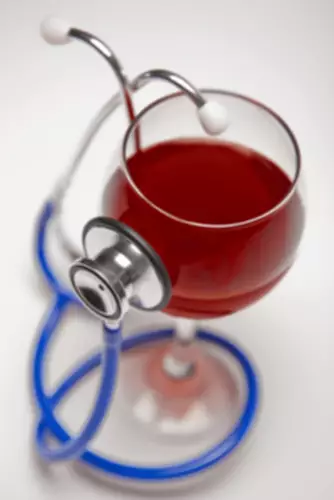Content
Alcohol is poisonous, so the liver has to filter it and convert it into something less deadly. The liver produces other compounds that cause unpleasant, dangerous side effects. Epidemiological studies have found a link between excess alcohol addiction and hypertension. The liver, brain, cardiovascular system, and gut may have suffered harm from frequent drinking; however, quitting alcohol can help restore some of that harm. As soon as the frequent alcohol use stops, these organs will start to repair gradually.
Brain hyperexcitability manifests clinically as anxiety, irritability, agitation, and tremors. Severe manifestations include alcohol withdrawal seizures and delirium tremens. With mild to moderate alcohol withdrawal, a person may see symptoms resolve in about two to seven days. However, those who drink more excessively may experience symptoms that last weeks or even months.
Check your symptoms
If you’re otherwise healthy and can stop drinking and get treatment, the outlook is usually good. However, sleep disturbances, irritability, and fatigue may continue for months. In addition, vitamin supplements may be given to replace essential vitamins that are depleted by alcohol use. Once withdrawal is complete, additional medications and supplements may be needed to address complications and nutritional deficiencies that occur because of chronic alcohol use. Hallucinosis, which may occur within 1 or 2 days of decreasing or abstaining from alcohol intake, is a complication distinct from DT’s.
Will I lose belly fat if I stop drinking alcohol?
People who gain fat from alcohol tend to gain it in the midsection of their body, causing an alcohol or “beer belly.” Cutting back on regular, moderate-to-heavy alcohol intake can make it easier to lose weight. People also find that they experience fewer unhealthy food cravings when they cut back on alcohol.
The most prescribed benzodiazepine is chlordiazepoxide, which is only available as a generic in the United States. If you need help finding a primary care doctor, then check out our FindCare tool here. It’s important to note that the Clinical Assessment mentioned above may be unreliable because it is https://ecosoberhouse.com/article/alcohol-detox-side-effects-what-bad-can-happen/ subjective in nature. According to a 2017 study, the use of the Objective Alcohol Withdrawal Scale (OAWS) was more useful for treatment because it can be used as a framework and tailored to individual cases. It slows down brain function and changes the way your nerves send messages back and forth.
Alcohol Withdrawal Syndrome: Symptoms, Causes, Treatment, and More
Regardless of the frequency of alcohol intake, if an individual is experiencing some or most of these alcohol withdrawal symptoms, they may have alcohol dependence. If this is the case, entering a detox and recovery program would be in their best interest. Even a casual drinker will experience the symptoms of alcohol withdrawal after having a few drinks. These symptoms get more severe based on the amount of alcohol that a person consumes and how long they have been drinking to that extent. In cases where a person has become physically dependent on alcohol, these symptoms can be life-threatening if not overseen by a trained medical professional.

This can cause sweating, which also brings with it other symptoms such as nausea and vomiting. For mild to moderate AWS, patients need not be hospitalized as a caregiver to monitor them at home is sufficient; however, a daily visit to the medical center is essential till full recovery. The more heavily dependent a person is on alcohol, the more significant alcohol withdrawal is likely to be. Most of the physical side effects of alcohol withdrawal likely dissipate within a week, while some of the psychological ones may linger longer.
Causes of Alcohol Withdrawal
As people go through withdrawal, they may experience high levels of anxiety. This is usually the result of the increased sensitivity that the body displays when it has stopped drinking. The anxiety can be so severe that people feel as though they are on edge, and they may also have difficulties sleeping as a result. The sudden withdrawal of alcohol is not healthy, because during alcohol intake, there is inhibition of neurotransmitter activity on the CNS.
The most uncomfortable detox withdrawal symptoms usually peak around hours after the last drink and start to lessen by hours. Although delirium tremens is unlikely, roughly 30% of those who get it will also develop Aspiration Pneumonia. A medically-assisted withdrawal helps prevent serious complications, keeps track of a patient’s health condition, and relieves any painful effects. Even after the most serious withdrawal symptoms have lessened, some people may experience post-acute withdrawal syndrome (PAWS) – the prolonged symptoms of detox. Generally, these symptoms include anxiety, low energy, trouble sleeping and delayed reflexes, and can last from several months to a year. The initial symptoms of alcohol detox are mild, but can quickly begin to worsen as time goes on.